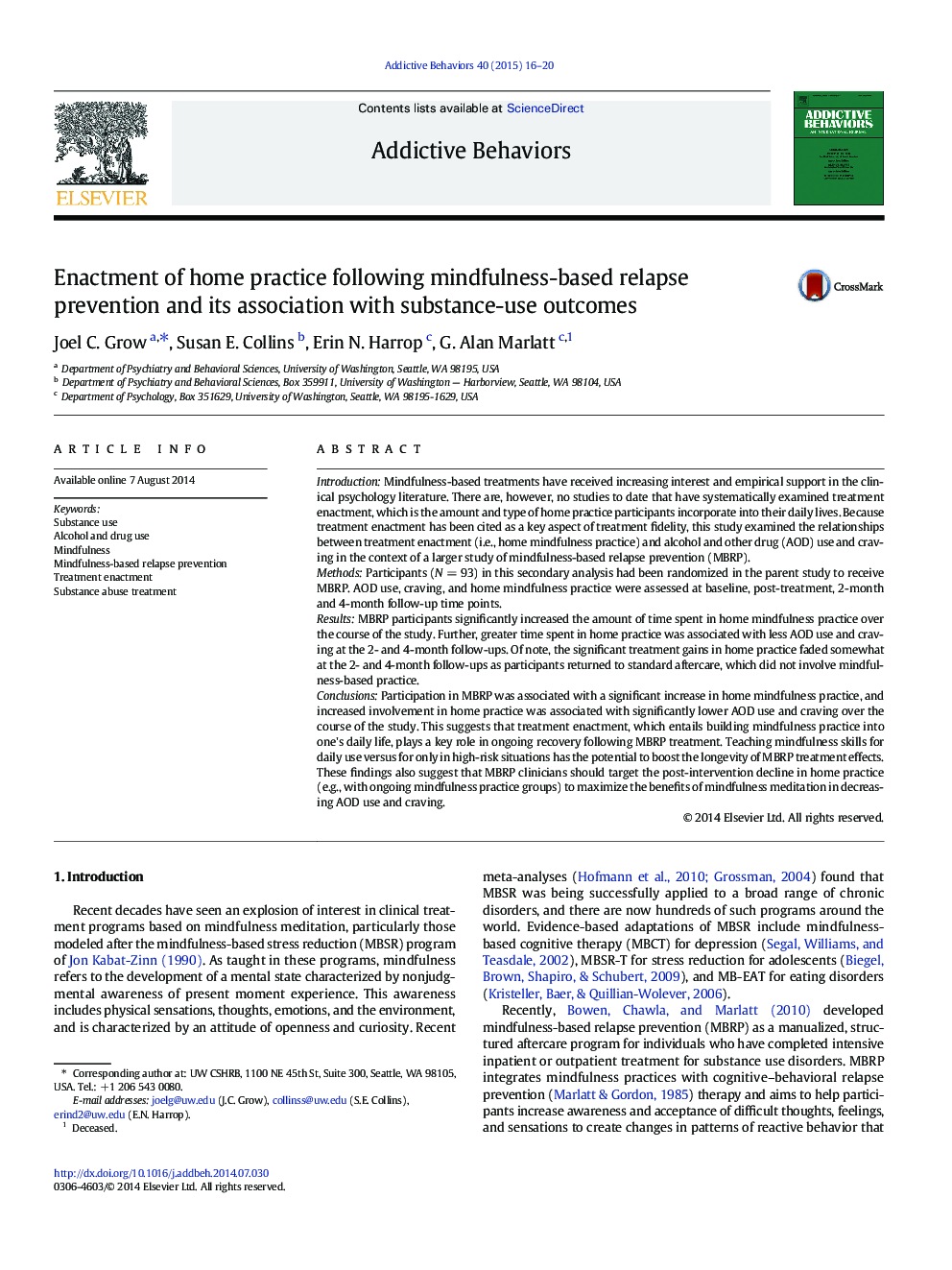| Article ID | Journal | Published Year | Pages | File Type |
|---|---|---|---|---|
| 7261211 | Addictive Behaviors | 2015 | 5 Pages |
Abstract
Participation in MBRP was associated with a significant increase in home mindfulness practice, and increased involvement in home practice was associated with significantly lower AOD use and craving over the course of the study. This suggests that treatment enactment, which entails building mindfulness practice into one's daily life, plays a key role in ongoing recovery following MBRP treatment. Teaching mindfulness skills for daily use versus for only in high-risk situations has the potential to boost the longevity of MBRP treatment effects. These findings also suggest that MBRP clinicians should target the post-intervention decline in home practice (e.g., with ongoing mindfulness practice groups) to maximize the benefits of mindfulness meditation in decreasing AOD use and craving.
Related Topics
Life Sciences
Neuroscience
Behavioral Neuroscience
Authors
Joel C. Grow, Susan E. Collins, Erin N. Harrop, G. Alan Marlatt,
